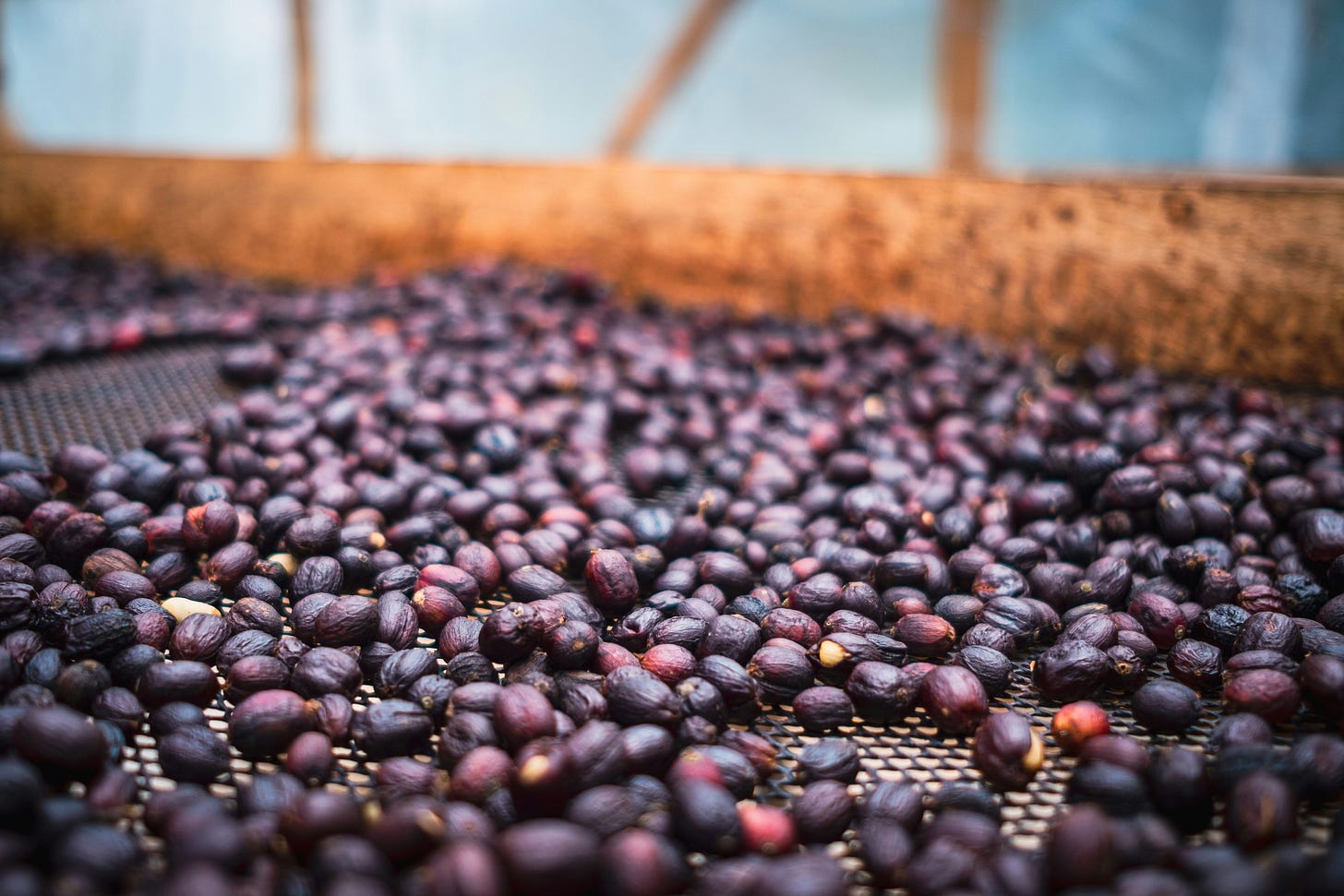These are the most important stories in coffee this week
Issue 2
Coffee is constantly evolving, from how it’s processed to where it’s sold and how it influences our daily lives. In this week’s edition, we explore the controversy around co-fermentation, the record-breaking success of World of Coffee Dubai 2025, how Breville is reshaping home coffee consumption, the unexpected ways coffee affects the brain, and the financial challenges facing Starbucks.
The Coffee Trend That’s Dividing the Industry
A new processing technique known as co-fermentation is pushing the boundaries of what coffee can taste like. By fermenting coffee beans alongside fruits and spices, producers can create bold, unexpected flavors such as watermelon, lychee, and cinnamon. While some see this as an exciting evolution in specialty coffee, others argue it disrupts the purity of single-origin beans. The controversy reached coffee competitions, where some co-fermented entries were disqualified for “altering natural DNA expression.” With more roasters experimenting and consumers embracing these unique flavors, the debate continues over whether co-fermentation is the future of coffee or just a passing trend. Read more.
World of Coffee Dubai 2025 Breaks Records in Auctions and Attendance
The fourth edition of World of Coffee Dubai concluded on February 12, setting new records with over 17,000 visitors and nearly 2,000 exhibitors, solidifying Dubai’s status as a major coffee trade hub. The event’s first-ever specialty coffee auction saw Panama’s Finca Sophia coffee sell for $10,020 per kilogram, while a Hawaiian Kona SL 34 set a record for American coffee at $910 per kilogram. With rising demand for ultra-premium beans, some cafés are expected to sell these rare coffees for as much as $1,000 per cup. The event’s success highlights the region’s growing influence in specialty coffee and its role in shaping global trends. Read more.
Breville Expands Coffee Bean Sales as Home Brewing Surges
Breville, best known for its high-end espresso machines, is expanding its coffee bean sales through its Beanz e-commerce platform, which saw per kilogram sales rise by more than 70% in the past year. The company aims to compete with supermarkets by offering freshly roasted coffee directly from roasters, claiming that store-bought beans are often stale. The shift comes as cost-of-living pressures push more consumers toward brewing at home, impacting the café industry. Meanwhile, Breville has also adjusted its manufacturing strategy, moving 120V coffee machine production out of China to counter the effects of Trump-era tariffs. Read more.
How Your Morning Coffee May Be Reshaping Your Brain
A placebo-controlled study from the University of Basel has found that daily caffeine consumption temporarily reduces gray matter volume in the brain, particularly in areas linked to memory and spatial cognition. Interestingly, these changes are reversible once caffeine consumption stops, meaning coffee drinkers may experience short-term shifts in brain structure without lasting negative effects. The study also found no impact on sleep quality, ruling out sleep disruption as the cause of these neural changes. While caffeine has been linked to neuroprotection against cognitive decline, researchers suggest further investigation into how coffee affects brain plasticity. Read more.
A Financial Look at Starbucks: Is a Turnaround on the Horizon?
Starbucks has faced a challenging financial year, with declining sales, rising costs, and economic struggles in China leading to the departure of its CEO. The appointment of former Chipotle CEO Brian Niccol has given investors some optimism, as he focuses on streamlining operations and restoring Starbucks’ premium café experience. However, financial concerns remain, with high debt levels, sluggish revenue growth, and a weaker balance sheet compared to competitors like McDonald’s and Chipotle. While Q1 2025earnings exceeded expectations, analysts suggest short-term caution, as Starbucks’ turnaround strategy will take time to materialize. Read more.
Final Sip
That’s it for this week’s Sip! From experimental processing techniques to major shifts in home brewing and global trade, the coffee world is constantly evolving. If you enjoyed this issue, share it with a fellow coffee lover. Have a topic you want us to cover? Reply to this email or visit sip.news.
See you next week for another dose of coffee news.







